Animal Charity Spotlight #2 Orangutans of Borneo
In the past century Orangutan numbers have dropped from an estimated 230,000 to just over 100,000 today, this has not occurred due to natural decline, their numbers have dropped solely due to human encroachment.
The largest threats facing Orangutans today comes from deforestation and poaching / illegal pet trade.
GRAPHIC CONTENT: You may find some of the photos and content in this post upsetting
Deforestation is taking place largely due to the increasing demand for Farmland, Palm Oil plantations and Urban projects throughout Indonesia, whilst the practise of clear cutting and unplanned deforestation is outlawed in Indonesia it is still believed that over 50% of logging procedures are of an illegal nature. The majority of illegal logging takes place in order to expand and construct Palm Oil Plantations, in order to ready the land for Plantation the Rainforest is regularly burned in a process referred to as Slash and Burn, the fires often spread uncontrollably and with Orangutans being Arboreal creatures they often become trapped by the flames and are burnt alive, any animals that are not consumed by fire are either shot or captured, which leads on to their second largest threat.
Poaching occurs predominantly to fuel the black market and illegal pet trade, the sale of Orangutans both dead and alive is outlawed in Indonesia but a thriving black market for bushmeat and baby Orangutans for pets means that Orangutans are constantly under threat from humans looking to make an extra bit of money. Baby Orangutans are gathered through a process that involves killing the Mother, as they are communal animals this practise often results in 4-5 adult Orangutans being killed for the baby, the baby is then condemned to a short life as a pet and the adults are butchered, with their meat being sold.
In 1997/1998 Indonesia suffered one of the most devastating forest fires in modern times, with an area of Rainforest the size of Virginia (110000Km2) ravaged in the space of only two years, this fire had a devastating impact on a wide array of wildlife with Orangutans heavily affected, many burned but those that managed to escape the flames were left with food and habitat shortages, as such they often ventured onto farmland and plantation sites, weary and injured thousands of desperate Orangutans were shot for their meat, it is estimated in just the past 40 years Borneo’s once lush Rainforests that once covered as much as 80% of the land now only cover 35%, with the number decreasing further still.
The Borneo Orangutan Sanctuary (BOS)
BOS were established in 1991, they are a non-profit organisation that has grown to 400 full time staff spread across 6 sites with a further 4 more planned in the near future.
The main goal and focus of BOS is to not only offer a safe refuge and sanctuary to displaced and orphaned Orangutans, but also to offer a path of rehabilitation so that in time the Orangutans can once again swing free in a protected location with a drastically lower risk of poaching or illegal deforestation.
The largest and most renowned site overseen by BOS is the Nyaru Menteng Orangutan rescue centre, founded in 1999 the rescue centre is located in a protected area of Borneo and since its inception is now the largest Orangutan rescue and rehabilitation facility in the world, with over 450 Orangutans currently living under the sites protection, as previously mentioned the main goal of the organisation is to prepare the Orangutans for life in the wild as independent animals, as such the facility does not function in the same way that other “Sanctuaries” throughout Indonesia and South-East Asia function, outside visitors are strictly prohibited from coming into contact with the Orangutans on site, so pictures of people holding cute baby animals in wicker baskets is a no-no here! This also prevents the spread of disease between humans and orangutans, biologically we aren’t too different and your illness can just as easily become theirs.
Rehabilitation
Baby School
Every day the newly arrived infants and young orangutans spend time in the forest nursery where they are cared and monitored by their sitters 24/7. The health of the infant is carefully monitored as the majority have come to the rescue severely malnourished and are extremely susceptible to illnesses. Many of the infants have been raised as pets after their mothers were slaughtered and have managed to survive without the one thing that they would usually spend 6 to 7 years with. Baby school teaches the orangutans how to climb and move around in trees, also teaching them social interactions with one another and eating different food. After spending a few years in baby school, they then graduate to Forest School.
Forest school allows the orangutans to develop the vital skills required to survive in the wild once they reach adulthood spending the entire day in the forest. They practice climbing, nest building, swinging from tree to tree and manoeuvring around them every day. They continue to learn about new foods they can eat and they also learn about things they need to avoid such as snakes. Most importantly they begin to come into further contact with a lot more orangutans staying in groups of 8-12 individuals who they will grow up with. The group will only return to the main centre in the late afternoon for snacks, milk and some sleep.
The last step in the rehabilitation process is The Islands. There are five islands: Kaja, Palas 1 & 2, Hampapak Matei and Bangamat which all have the Rungan River running through it and behind the Nyaru Menteng veterinary clinic. There are only a few feeding platforms and jetties on the islands to keep the setting as natural as possible. The Orangutans who have successfully gone through the rehabilitation process are then brought onto the islands for at least two dry seasons and one wet season to ensure they can cope with the different fluctuations of food available to them. Some of the orphans become more independent and solitary whereas others will remain in small groups eventually going their own way which is the main sign they are ready to go back to the wild. They are released in small groups giving them to option of staying together or going it alone.
Every day the orangutans on the islands must be sighted at least once by the staff, if not they are considered to be missing and a search party is instantly brought together until the animal is found. This allows for the team to intervene should one become injured or ill.
To find out more visit
To donate to save orangutans
https://redapes.org/donate
Final thoughts…
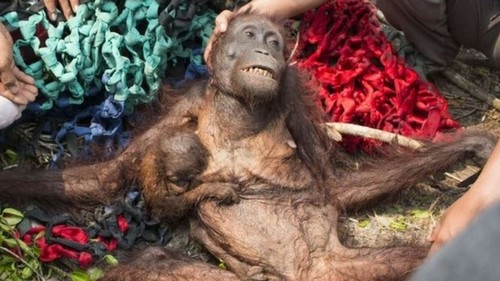
I find it incredibly disturbing when I read people I know or their friends have gone to places in some countries where they are able to get up close and hold a baby orangutan or any wild animal for that matter in these places called "sanctuaries". The term sanctuary is thrown around far too loosely, and people believe that if it is a "sanctuary" then the animals are going to be cared for correctly and sadly this is not always the case. As you have read, members of the public can visit BOS but cannot get up close to the orangutans and that is how it should be.
There are ways you can help orangutans and other animals of the world today, you can become more sustainable in your own home through recycling, reduce your food waste, reduce the use of plastic, and carefully select places to visit on holiday where the animals are not exploited for money - you shouldn't be able to take a selfie or even touch some species. As Palm oil is one of the main threats to orangutans it is also hard to avoid in every day foods as you will find that it is found in almost everything you eat. If you don't want to cut it out all together, reducing the amount of foods you eat that do have palm oil in it will still contribute to helping these amazing primates in the wild.
You can adopt one of the cute orphans in their care! Adopt here
Either way if we do not do something now, these amazing animals will soon disappear from the forests.
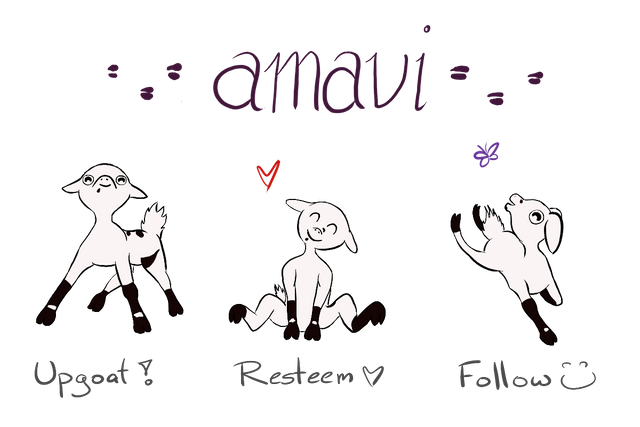
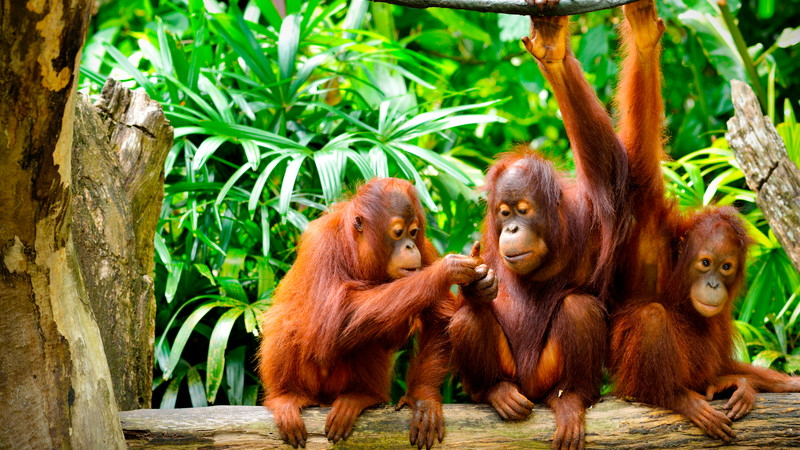
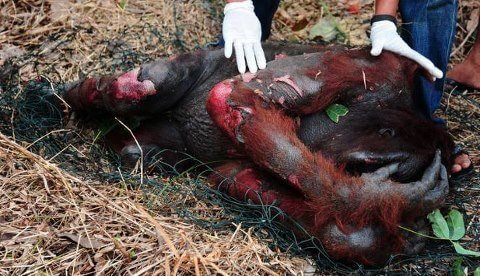
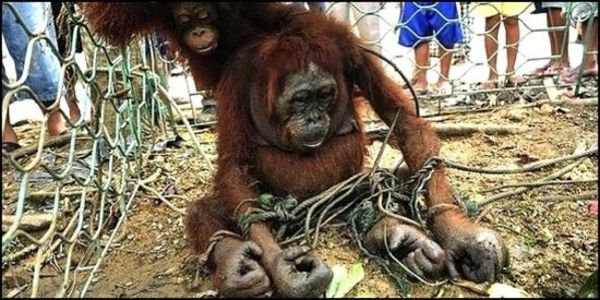

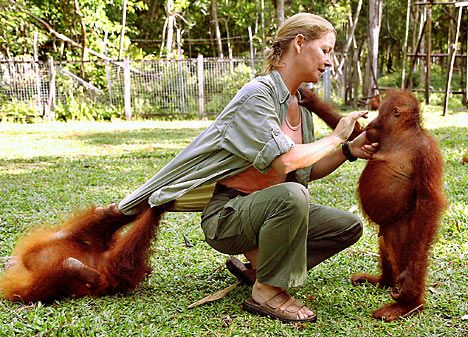
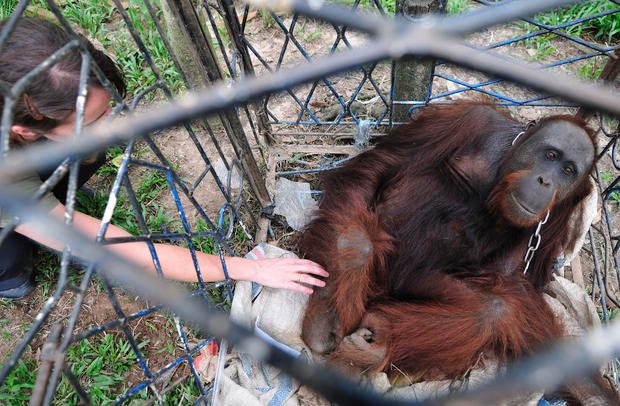
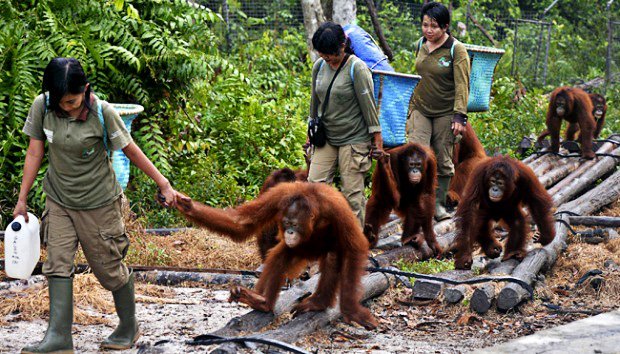
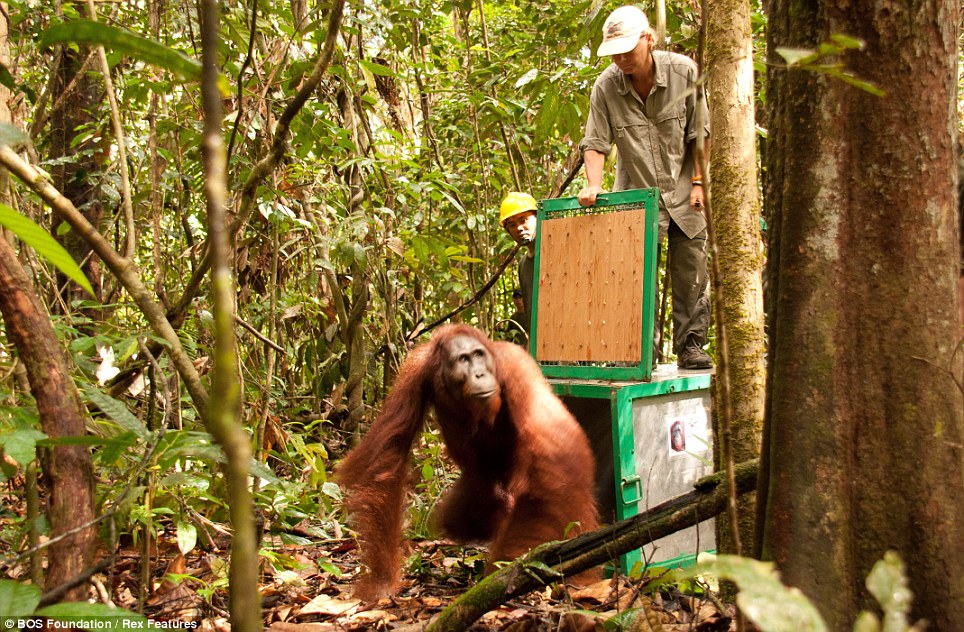
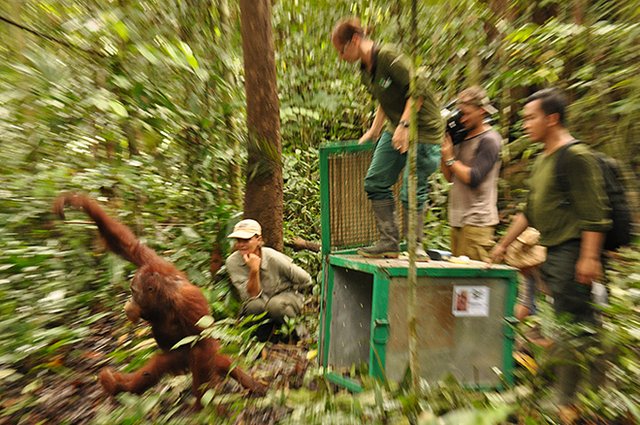
Please consider warning about graphic content in future posts, awesome cause and I'm so glad you're giving it a voice! Just would have appreciated a heads up <3
massive apologies and I thought I had put it on there, it is there now :)
No worries! I just know some animal lovers are really sensitive to things like that- these are tpoics we need to discuss so I'm glad you're bringing them up !
@originalworks
The @OriginalWorks bot has determined this post by @amavi to be original material and upvoted(1.5%) it!
To call @OriginalWorks, simply reply to any post with @originalworks or !originalworks in your message!
Down with palm-oil! That stuff is actually in almost everything.
We found eating locally grown, baked or cooked whole foods to be the safest bet whenever available.
Great cause anyhow - I'm happy to see it on here.
it's so sneaky too! things you'd never expect... palm oil.
It breaks my heart knowing what humans are doing to the animals--all animals, not just the orangutans.
On a more positive note, your new upgoat footer looks great. @ryivhnn did another awesome job there.
Nice one.. Pure original
Resteemed by @resteembot! Good Luck!
Curious?
The @resteembot's introduction post
The @reblogger's introduction post
Get more from @resteembot with the #resteembotsentme initiative
Check out the great posts I already resteemed.
You were lucky! Your post was selected for an upvote!

Read about that initiative
They are so cute